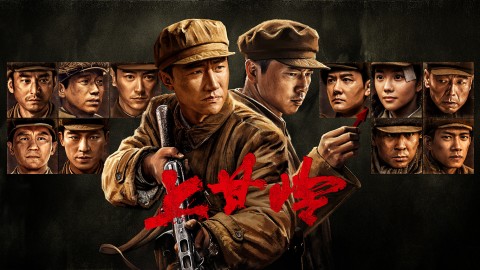Episode 3 recap: Duan Xian Feng Successfully Disarms an Aerial Bomb
In Episode 3, set in May 1952, William Harrison becomes the lead negotiator for the "United Nations Forces." The U.S. firmly refuses to discuss the issue of prisoners of war outside of "voluntary repatriation," which plunges the negotiations into an unprecedented deadlock. By May 7, both sides cannot reach an agreement, and the talks come to a complete standstill. The United Nations Forces, unwilling to concede, initiate psychological warfare at the front lines, attempting to undermine our troops' morale through broadcasts; however, the volunteers respond resolutely.
In our 15th Army's Company One, there’s a soldier named Chen Fenglou who is incredibly fired up and eager to engage with American troops. The company commander, Pi Liansuo, remains calm and advises him that the priority is to build solid defenses. Despite this, Chen Fenglou can’t contain himself and ends up shooting an American soldier, followed by occasional sniper fire that inflicts significant losses on the U.S. 7th Division.
Facing a technologically advanced enemy, General Qin Ji Wei decides to launch a major operation at the Battle of Shangganling and construct tunnels. However, they encounter challenges during implementation, and the soldiers have their own doubts. Chief of Staff Zhang Yunyue comes up with an idea: he proposes a competition between the 8th and 1st Companies to dig the tunnels, using honor as motivation. This tactic proves effective, and both companies work tirelessly against the clock.
Duan Xian Feng is innovative and attempts to use explosives for the tunnel construction, which temporarily gives the 8th Company an advantage. Unfortunately, when American bombers arrive, the freshly dug tunnel collapses, forcing the 8th Company to concede. When Duan Xian Feng reports this to Qin Ji Wei, Hu Man Cang admits he was a bit hasty and didn’t consider the tunnel’s stability. Qin Ji Wei doesn’t blame anyone and organizes a group photo with the 8th Company soldiers, who are all smiles.
After considerable effort, the tunnel is finally completed, featuring a medical room, storage area, ammunition depot, and a concealed cooking space. During an inspection by Deputy Commander Wang Jin Shan of the 3rd Military Corps, an American bomb falls on the 8th Company’s position but fails to detonate. Duan Xian Feng skillfully disarms it, earning praise from Wang Jin Shan.
The soldiers of the 15th Army spend over five months digging more than 300 tunnels, totaling over 20,000 meters, and constructing trenches and various fortifications to form a robust defense system. When the commander of the 45th Division, Cui Jianggong, learns that a lookout post has been bombed, he immediately sends Intelligence Director Liu Xiangyang to establish a new one. With time constraints and a heavy workload, they also need personnel who understand foreign languages. Intelligence officer Du Wen Jin volunteers for the mission. On their way, they encounter American bombings, and Duan Xian Feng organizes the group to take cover, but some Korean civilians are put in danger due to language barriers. Du Wen Jin's comrade sacrifices himself to save them, but despite their best efforts, they are unable to rescue everyone.
At that time, the U.S. was preoccupied with elections, and the setbacks in Korea became a political weapon for Eisenhower to attack Truman. He promised to end the war immediately if elected president. Meanwhile, the U.S. front lines remained active, drawing the attention of the volunteer forces. Leaders like Deng Hua, Yang De Zhi, and Hong Xue Zhi held discussions and decided to formulate a counterattack plan.
In October, Mao Zedong and Zhou Enlai approved this plan, emphasizing the need to use the advantages of the tunnels for protection. Qin Ji Wei suspected that the enemy might be planning a diversionary tactic and consulted with Wang Jin Shan, proposing a surprise attack on Hill 391. Wang Jin Shan found this reasoning sound and immediately approved the plan.



Comments(Episode 3)